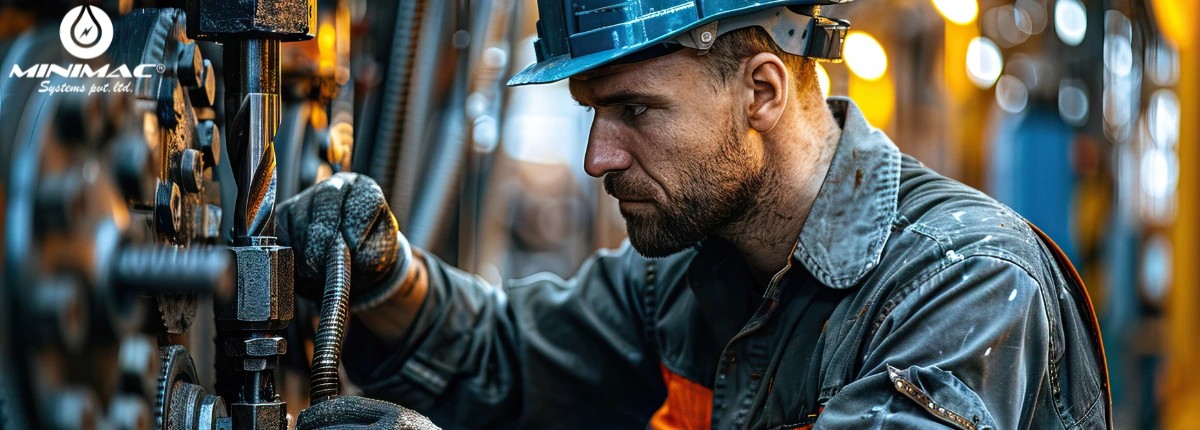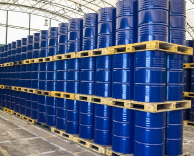The Role of Filtration Systems in Keeping Clean Oil
Introduction
Have you ever thought about what makes your machinery last so long? Let's uncover the secret to its durability.
In the manufacturing industry, machines are essential for keeping production running smoothly. However, with daily operation, machine oil becomes contaminated with debris and wear particles, which raises the risk of breakdowns and unexpected shutdowns.
This is where “filtration systems” become essential.
Filtration systems work on stage-wise filtration technology to remove the solid particles of lubricating and hydraulic oil to increase the life of the machine and reduce the cost.
Importance of clean oil:
Without the implementation of clean oil, it can lead to failure, and a decrease in production will cost a lot in the output for the manufacturing company. In turn, clean oil is important for the machinery to function effectively and run smoothly during production. Let's explore it.

- Improved Performance: Clean oil ensures that machinery operates at its best.
- Extended Equipment Life:An oil-free environment leads to less long-wearing mechanisms, hence a longer machinery lifespan.
- Reduced Maintenance Cost:Maintenance costs are reduced as clean oil lowers the frequency of required repairs, thus saving money in the long run.
- Less Downtime:Reduced probability of breakdowns leads to better, regular, and predictable working operations.
Types of Oil Contamination
The top three ways oil can become contaminated:
- Foreign Particles: Dust, dirt, and metal particles can flow into the oil.
- Moisture mixed with oil: oil pollution in the water, oil will rust, and so on.
- Chemical Contamination:Acids and sludge begin to form that can degrade the oil.
Basics of filtration systems:
There are two types of oil filtration: mechanical type and chemical type. Each type has its mechanism and usage.
1) Mechanical Filtration:
Mechanical filtration systems use physical barriers to remove contaminants from oil. These barriers can be anything from mesh screens to paper filters.
Mechanical filters trap particles as oil passes through them. The size of the particles removed depends on the pore size of the filter media.
Common Applications
- Industrial machinery
- Hydraulic systems
- Turbine Systems
- Gear oil
- Water Glycol
Benefits
- Simple to use and maintain
- Effective at removing large particles
- Cost-effective
2) Chemical Filtration
Chemical Filtration Chemical filtration is the method of filtering oil in the same way as physical and mechanical removal of impurities but using chemicals to do so. This can range from surface reaction in the form of adsorption on a material.
Filters are mainly activated carbon and have adsorbents that hold the contaminants firm.
Common Applications
- Waste oil filtering in the food industry
- Pharmaceuticals
- Fine chemical production
Benefits
- Removes tiny particles and dissolved chemicals
- Designed to Eliminate Odours and Colours
Benefits of Using Advanced Lubrication
Advanced lubrication, facilitated by high-quality filtration systems, offers several benefits:
- Prolonged Machinery Life:Clean oil reduces wear, leading to longer-lasting equipment.
- Less Downtime:More breakdowns mean less reliability and efficiency.
- Cost savings:When something breaks down fewer times, it costs the owner/laborer to maintain and mend it frequently.
- Environmental Advantages:This cleaner oil reduces the industrial impact on the ecosystem by reducing waste and pollution.
Maintenance and Servicing of Filtration Systems
To ensure the functionality of your filters, regular service and maintenance need to be carried out.

- Regular Inspections: Regular checks will make sure that if there is a problem, one can be informed of that and take precautions to correct it rather than getting a problem and remaining undetected, causing a great issue later on.
- Filter replacement:ensures peak performance and prevents clogging due to timely filter replacement.
- System Cleanliness:The filtration system in its entirety should be kept clean to optimize its function and to make it last longer.
Choosing the Right Filtration System
Selecting the right filtration system involves considering several factors:
- Type of Machinery:Different machines have different filtration requirements.
- Nature of Operations:The type of work and environment can affect the type of contaminants present.
- Type of Contaminants:Identifying the specific contaminants in your oil helps choose the most effective filtration system.
Consulting with experts and conducting a thorough assessment of your machinery and operations can help in making the right choice.
Conclusion
Filtration systems are integral to the longevity and efficiency of machinery in the manufacturing industry. A clean oil system doesn't just save you money in reduced maintenance costs; it also means less wear and tear on the system, which means longer life and less downtime. Courtesy of some assistance that comes your way when you have regular, suitable maintenance. After choosing the correct filtration solution for your specifications, you can enjoy such benefits and run smoothly every single time.





